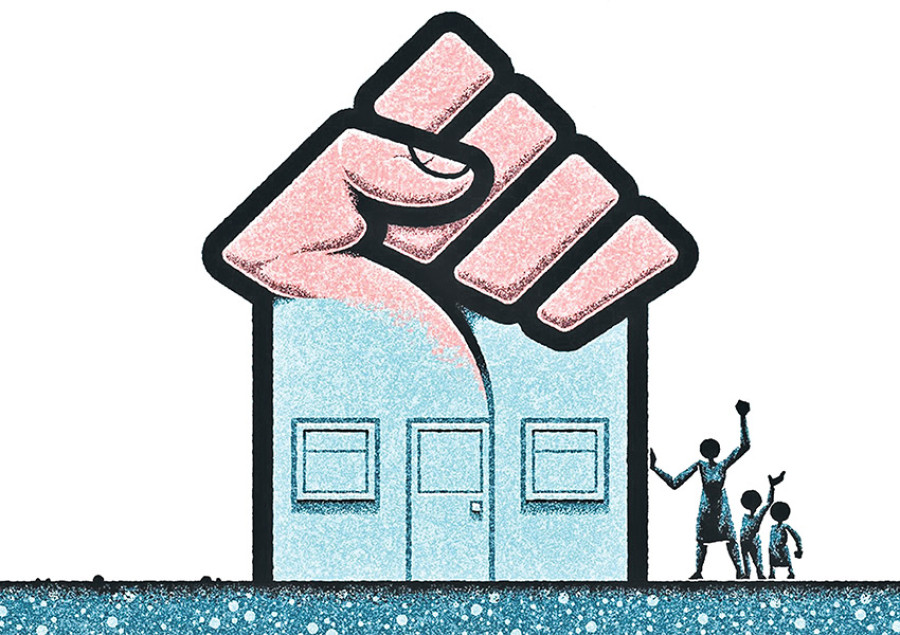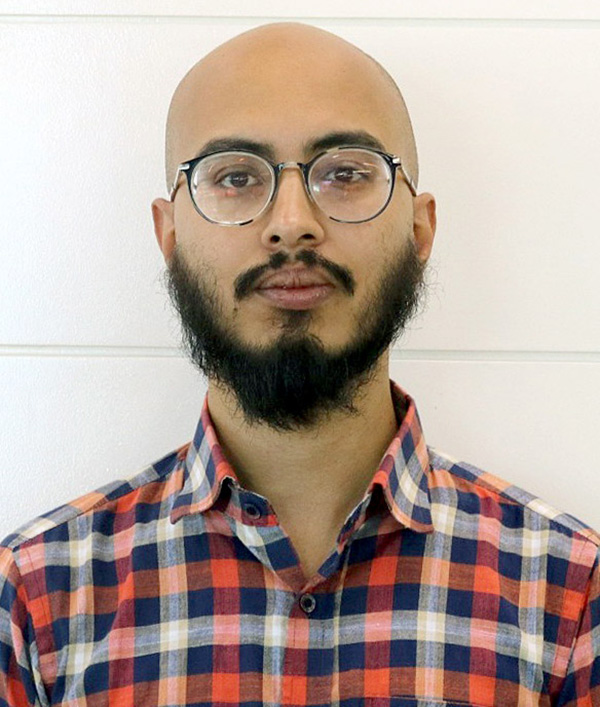Miscellaneous
On violence
A life is a life, especially when it is extinguished. But sadly, some deaths mean more than others, some lives are just more precious
Pranaya SJB Rana
"On the specific question of violence, the elite are ambiguous. They are violent in their words and eformist in their attitudes.”
One day, some weeks ago, as I walked down from my home in Greenland Dhapasi to a microbus at Basundhara, I noticed two young kids, maybe 11 or 12, doggedly following a Madhesi man with a bicycle. This man, dressed in loose fitting cotton pants and shirt, was studiously attempting to ignore the two boys, who were hand-in-hand and giggling. As I passed by, I distinctly heard the boys call after the man, while following him around, “Dhoti, ae Dhoti.”
“It is not enough for the settler to delimit physically, that is to say with the help of the army and the police force, the place of the native. As if to show the totalitarian character of colonial exploitation the settler paints the native as a sort of quintessence of evil. Native society is not simply described as a society lacking in values...The native is declared insensible to ethics; he represents not only the absence of values, but also the negation of values. He is, let us dare to admit, the enemy of values, and in this sense he is the absolute evil.”
Even earlier, when images of Madhesi and Janajati leaders smashing and hurling chairs in Parliament flooded our airspaces, social media took on a strange, unwelcome hue. Under a thin veneer of condemning violence, the bile spewed on social media took on decidedly bigoted overtones. The barbs hurled were no doubt familiar to Madhesis: dhoti, Bihari, Indian. Some people, who on occasion had even posted that all 601 members of the Constituent Assembly, should be shot, were now suddenly concerned about the sanctity of Parliament. Most others complained of what ‘message’ this would send to the world.
Earlier this week, when news came in of the terrible deaths of security forces and protestors, social media was similarly flooded. This time, the racism wasn’t hidden; it burst forth as if it had been waiting, crouched beneath the skin. There were comments about how Tharus should have stayed Kamaiyas, comments wishing for floods to wash away the Tharus. Some regretted having donated goods to those very Tharus during the floods last year. Someone posted, “Let the security forces go around the Madhes and ask everyone there who they are. Anyone who replies ‘Madhesi’ or ‘Tharu’ should be shot dead on the spot. Anyone who replies Nepali should be let go.” And all along, that now-familiar refrain, “Are they even Nepali?”
"The native is always on the alert, for since he can only make out with difficulty the many symbols of the colonial world, he is never sure whether or not he has crossed the frontier. Confronted with a world ruled by the settler, the native is always presumed guilty. But the native’s guilt is never a guilt which he accepts; it is rather a kind of curse, a sort of sword of Damocles, for, in his innermost spirit, the native admits no accusation. He is overpowered but not tamed; he is treated as an inferior but he is not convinced of his inferiority.”
There is no defence of violence. Malcolm X’s threat of ‘by any means necessary’ does not encourage violence, it encourages only the means that are necessary. And there are those who would argue violence as necessary, but I would reply that murder is never necessary. The violence inflicted on an unequal system is the only kind of violence that is necessary and in that sense, the system must be smashed, not reformed. The structure must be destroyed and built from the ground up in a twilight of the idols. To those protesting the new federal set-up of the country, no structure has been destroyed. The new is the same as the old.
The violence of the Tikapur incident was brutal, no doubt. And there can be few who would condone or justify that atrocity. But there are many who would ask that the same outrage be directed at those who perished at the hands of the security forces, like Rajiv Raut. But the social media consensus seems to be that because he was protesting, he somehow deserved his death. His guilt was decided the moment he joined the protest; his death was his sentence.
The point is not to belittle one death or another; it is not to say one was more important than the other. A life is a life, especially when it is extinguished. But sadly, some deaths mean more than others, some lives just more precious.
“The politicians who make speeches and who write in the nationalist newspapers make the people dream dreams. They avoid the actual overthrowing of the state, but in fact they introduce into their readers’ or hearers’ consciousness the terrible ferment of subversion. The national or tribal language is often used. Here, once again, dreams are encouraged, and the imagination is let loose outside the bounds of the colonial order; and sometimes these politicians speak of “We Negroes, we Arabs,” and these terms which are so profoundly ambivalent take on during the colonial epoch a sacramental signification. The nationalist politicians are playing with fire: for, as an African leader recently warned a group of young intellectuals, “Think well before you speak to the masses, for they flare up quickly.”"
Who is to blame for these deaths? Is every man his own master or is he often misled and promised dreams by those who would seek to use this man for their own ends? On one side, the protestor and on the other, the policeman. Who is the more autonomous? The protestor is there of his own accord, he is fighting for his right to be. The policeman is there without choice, fighting for his pay. Who do we blame? Those who would fan the flames of war in order to achieve all ends, decrying the same blaze they helped ignite when the fires have charred all? Or those who would send some 50 policemen to take a crowd of 10,000 under control, even when they know there are those sowing discord?
Why does it take acts of violence to bring those powerful to the table to talk? Why is that when unspeakable acts of violence are enacted, it is only then that the politicians spring into action? If your early action could have stopped murder, at the end of the day, whose hands are really bloody?
“Decolonisation never takes place unnoticed, for it influences individuals and modifies them fundamentally. It transforms spectators crushed with their inessentiality into privileged actors, with the grandiose glare of history’s floodlights upon them. It brings a natural rhythm into existence, introduced by new men, and with it a new language and a new humanity. Decolonisation is the veritable creation of new men.”
What the second Janaandolan, with its toppling of the monarchy, set in motion cannot be stopped. It has acquired a force of its own—it will continue to move forward unless acted upon. And even then, if it has momentum, it will sweep all obstacles out of the way.
No one is ever really comfortable with repression; it’s a human trait. Being beholden to someone else rankles. We all would rather be our own masters. Those protesting know this, but perhaps those in ivory towers do not. Sometimes, it might look like they’re losing but the struggle is long and it is arduous.
(All excerpts taken from ‘Concerning violence’ in The Wretched of the Earth by Frantz Fanon)




 13.12°C Kathmandu
13.12°C Kathmandu










